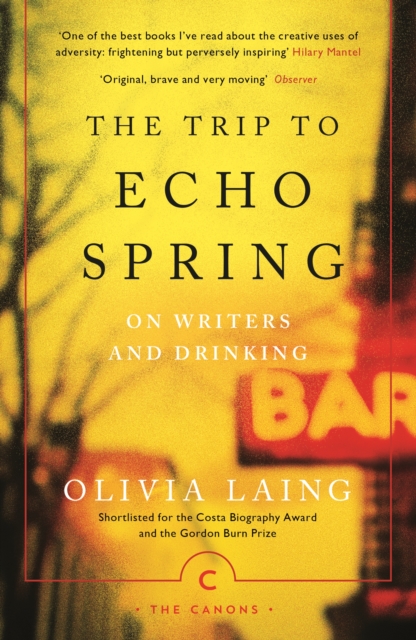CITESTE MAI MULT
Detalii
Descriere RO
Why is it that some of the greatest works of literature have been produced by writers in the grip of alcoholism, an addiction that cost them personal happiness and caused harm to those who loved them? In The Trip to Echo Spring, Olivia Laing examines the link between creativity and alcohol through the work and lives of six extraordinary men: F. Scott Fitzgerald, Ernest Hemingway, Tennessee Williams, John Berryman, John Cheever and Raymond Carver.
All six of these writers were alcoholics, and the subject of drinking surfaces in some of their finest work, from Cat on a Hot Tin Roof to A Moveable Feast. Often they did their drinking together - Hemingway and Fitzgerald ricocheting through the cafés of 1920s Paris; Carver and Cheever speeding to the liquor store in Iowa in the icy winter of 1973.
Olivia Laing grew up in an alcoholic family herself. One spring, wanting to make sense of this ferocious, entangling disease, she took a journey across America that plunged her into the heart of these overlapping lives. As she travels from Cheever's New York to Williams' New Orleans, from Hemingway's Key West to Carver's Port Angeles, she pieces together a topographical map of alcoholism, from the horrors of addiction to the miraculous possibilities of recovery. Beautiful, captivating and original, The Trip to Echo Spring strips away the myth of the alcoholic writer to reveal the terrible price creativity can exert.
EdituraCanongate Books
Dimensiuni198 x 133 x 22
Data Publicarii05/10/2017
Format
Necartonata
Numar pagini352
Aceasta este o carte in limba engleza. Descrierea cartii (tradusa din engleza cu Google Translate) este in limba romana din motive legale.
De ce unele dintre cele mai mari opere ale literaturii au fost produse de scriitori care se confrunta cu alcoolismul, o dependenta care le-a costat fericirea personala si le-a cauzat rau celor care i-au iubit? In The Trip to Echo Spring, Olivia Laing examineaza legatura dintre creativitate si alcool prin munca si viata a sase barbati extraordinari: F.

